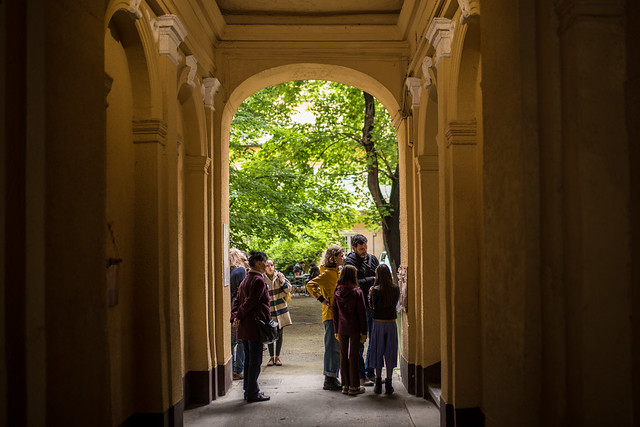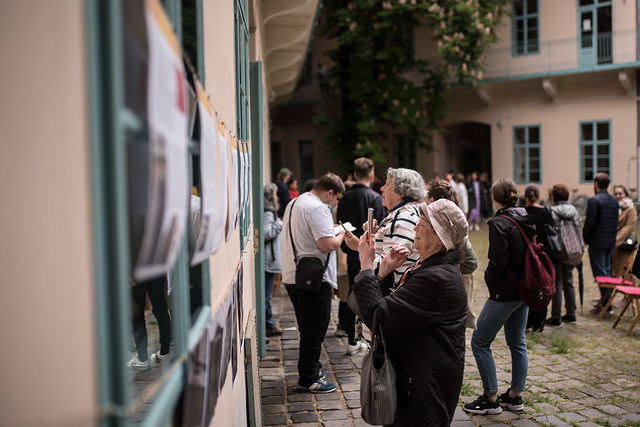Budapest100
Budapest100 is an annual weekend festival that unveils and celebrates the built heritage of Hungary’s capital city. Unlike other initiatives that showcase architecture in public buildings, Budapest100 embraces the intrinsic value of every house, irrespective of outstanding architectural merits or legal protection. Through guided visits to houses and engaging exhibitions, visitors and residents share stories, knowledge, and experiences, fostering connections and mutual understanding.
Initiated by the Open Society Archives and the Hungarian Contemporary Architecture Centre in Budapest in 2011, Budapest100 swiftly transformed into a highly successful annual urban festival, commemorating buildings that reached their centenary in each respective year. Since 2015, due to the impact of World War I, celebrating 100-year-old buildings annually has become unfeasible. Instead, each year, the festival selects different themes, such as the centenary of the Bauhaus movement or the 150th anniversary of the city’s unification. The festival’s fundamental approach remains unchanged and is captured in its motto: every building is interesting.
Financial support is provided by the National Cultural Fund, the City of Budapest, or neighbouring municipalities and sometimes private sponsors or through international collaborations and prizes, underscoring the commitment of public institutions to the success and sustainability of this significant cultural event.
Residents generously open their houses during the festival weekend and curate programmes for visitors. Through exhibitions and personal stories shared by residents, visitors gain insight into the history of these houses. These interactions stimulate conversations among participants, including with their neighbours, forging connections within the community. Visitors experience their city from a fresh perspective, while residents deepen their bonds with their homes and each other.
Alongside the impressive quantitative results, such as more than 600 opened buildings, the involvement of 2,000 dedicated volunteers, and an estimated 160,000 visitors, the festival’s qualitative impact is equally noteworthy. This includes the sustainability of community-driven initiatives, as, for example, residents continue to organise community gatherings after the festival has concluded. Volunteers, having developed increased independence and reliability, feel empowered to pursue their own initiatives in various aspects of their personal or professional lives. Furthermore, the festival’s influence extends to the restoration and renovation sector, as participating houses are encouraged to apply for grants, and encourage decision-making processes at municipal and urban planning levels.
“This impressive event has steadily grown its community over the years. It draws attention to lesser-recognised built heritage and embraces various forms of expression, especially highlighting the importance of oral history in relation to buildings and places. A notable aspect of Budapest100 is the involvement of people in researching and presenting the houses, fostering a sense of empowerment, ownership, and stewardship, which can be a challenging task”, the Awards’ Jury commented.
“The Budapest100 festival serves as a catalyst for community-building and inspires others to adopt similar initiatives in their own villages and cities, reinforcing the significance of preserving and celebrating heritage from the ground up. Its transferability and strong methodology make it applicable to other villages and cities”, the Jury added.
More information
Contact: Barbara Szij | budapest100@kek.org.hu | www.budapest100.hu



